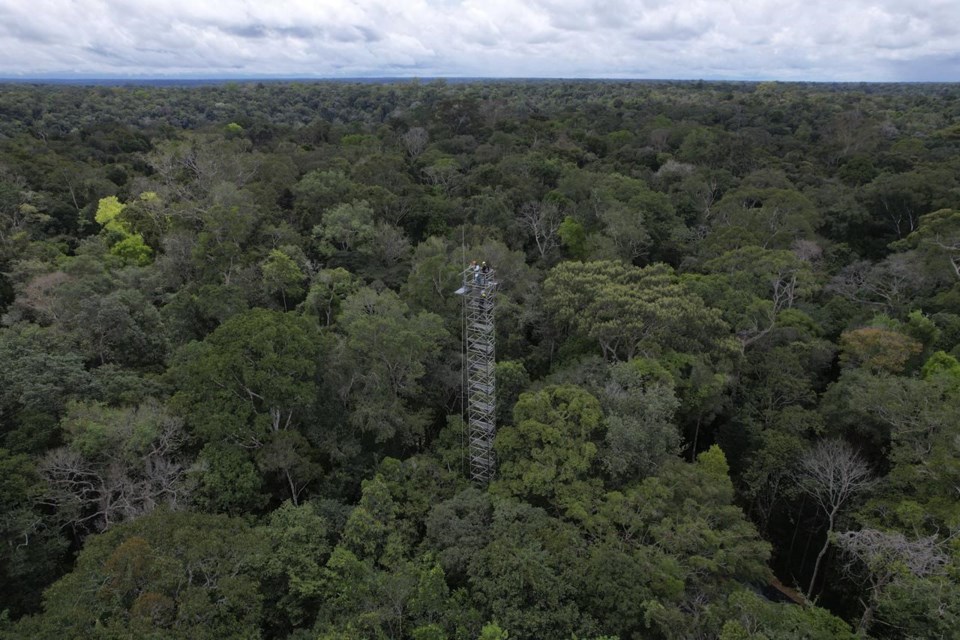RIO DE JANEIRO (AP) — In the depths of the Amazon, Brazil is building an otherworldly structure — a complex of towers arrayed in six rings, poised to spray mists of carbon dioxide into the rainforest. But the reason is utterly terrestrial: to understand how the world’s largest tropical forest responds to climate change.
Dubbed AmazonFACE, the project will probe the forest’s remarkable ability to sequester carbon dioxide — an essential piece in the puzzle of world climate change. This will help scientists understand whether the region has a tipping point that could throw it into a state of irreversible decline. Such a feared event, also known as the Amazon forest dieback, would transform the world’s most biodiverse forest into a drier savannah-like landscape.
FACE stands for Free Air CO2 Enrichment. This technology first developed by Brookhaven National Laboratory, located near New York City, has the ability to modify the surrounding environment of growing plants in a way that replicates future levels of atmospheric carbon dioxide concentrations.
“Plants absorb carbon dioxide along with water and light to produce sugars and release oxygen. What happens when one increases this input? We don’t know," David Lapola, one of the leading scientists of the project, told The Associated Press. "We have evidence from similar experiments in temperate forests, but there is no guarantee that the behavior will be the same here in the Amazon.”
Lapola, a professor at the State University of Campinas, argues that the tipping point of the Amazon rainforest is more likely tied to climate change rather than the rate of deforestation. Thus, it is crucial to study the impact of higher concentrations of carbon dioxide in the forest to understand what lies ahead.
This perspective challenges the widely quoted study by Earth system scientist Carlos Nobre. According to Nobre, if deforestation reaches a critical threshold of 20% to 25% across the Amazon, the balance of the region’s rainfall system will be disrupted, leading to the transformation of the lush rainforest into a savannah.
“Even if we halted deforestation in the Amazon basin today, the forest would still be at risk of experiencing the consequences of a tipping point due to climate change,” Lapola said. “While stopping deforestation remains our primary responsibility, combating the climate change driven by atmospheric factors is not something that Brazil or other Amazonian countries can address alone.”
The construction of the initial two rings is underway and they are expected to be operational by early August. Each ring will consist of 16 aluminum towers as high as a 12-story building. The carbon dioxide will be supplied by three companies to avoid any shortage.
Situated 70 km (44 miles) north of Manaus, the project is led by the National Institute for Amazon Research, a federal institution, with financial support from the British government, which has pledged $9 million. It should be fully operational by mid-2024.
Luciana Gatti, an atmospheric chemist, praised the initiative and said it would be highly beneficial to replicate the project in the four quadrants of the Amazon, as the carbon absorption capacity varies significantly across the region, which is twice the size of India.
Gatti, who is not directly involved with AmazonFACE, coauthored a landmark study published in the journal Nature, which revealed that the eastern Amazon has ceased to function as a carbon sink, or absorber for the Earth and has transitioned into a carbon source.
___
Associated Press climate and environmental coverage receives support from several private foundations. See more about AP’s climate initiative here. The AP is solely responsible for all content.
Fabiano Maisonnave, The Associated Press




